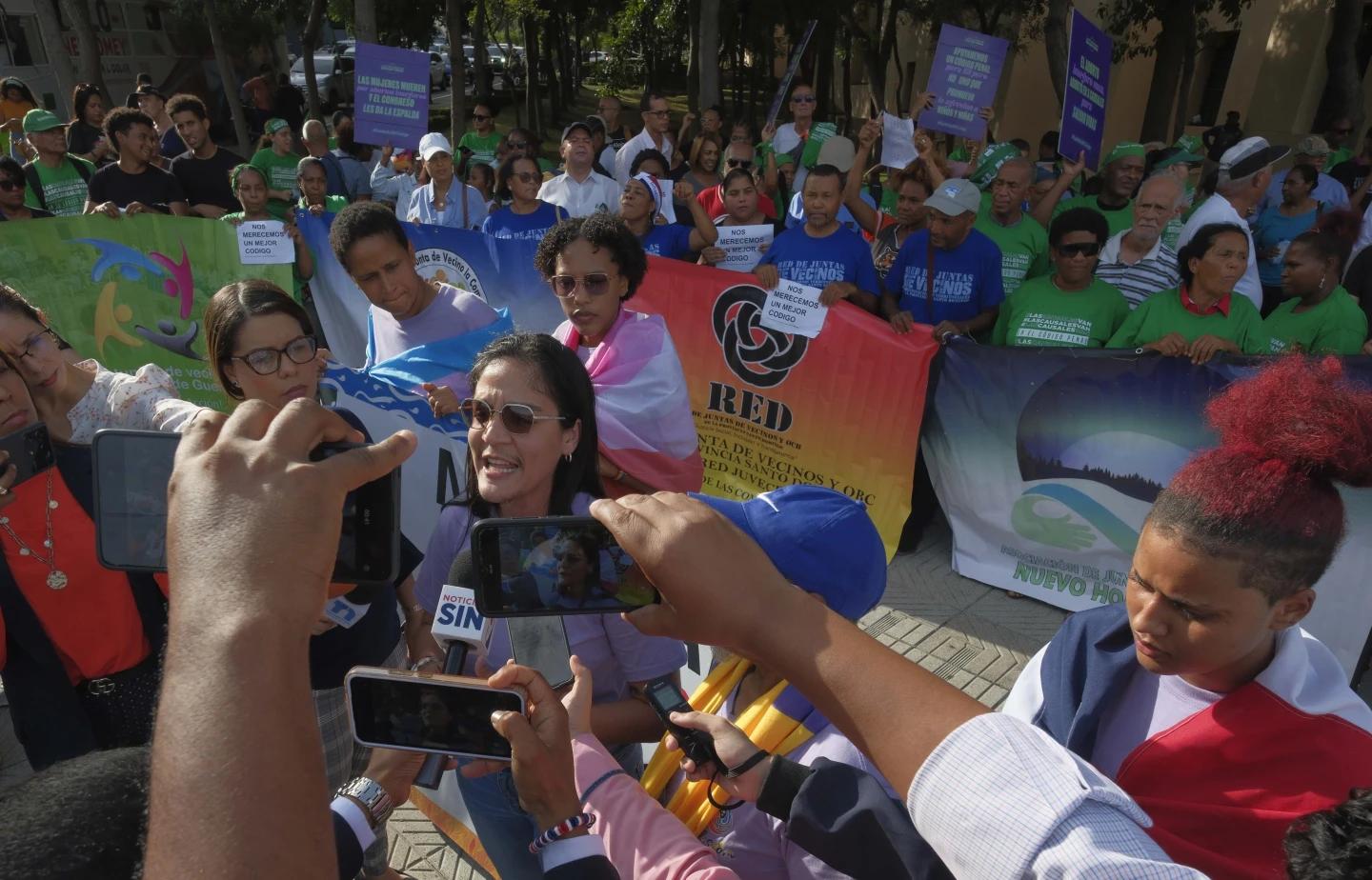SÃO PAULO, Brazil – After more than 20 years trying to promote a reform of its penal code, the Dominican Republic has failed again to update its 19th-century set of criminal laws, in part due to tensions over abortion.
The current legislature came to an end in the Dominican Republic on July 25 and a committee in charge of the reform hadn’t completed its work yet, meaning the project is once again temporarily on hiatus.
One of the major bones of contention in the bill is the theme of abortion. The Dominican Republic is one of the few nations in Latin America and the Caribbean that completely forbids it, along with nations such as El Salvador and Honduras.
Several civic organizations had been campaigning for the introduction of the so-called “three circumstances” or “three exceptions” in the penal code, aiming to make abortion legal in cases of rape or incest, in cases of malformation incompatible to life, and if the mother’s life is put in danger by pregnancy.
Although pro-life Catholic activists are confident about the legal and political impossibility of the three exceptions being approved when new Members of Congress take office in August, they are prepared to keep struggling against any loosening of the current ban on abortion in the Caribbean nation.
During public hearings over the past weeks, Christian pro-life organizations and feminist and other pro-abortion groups defended their ideas in the public sphere, including during hearings in Congress.
On July 16, for instance, the Dominican Medical Council demanded the inclusion of the three exceptions in the new penal code.
“Today, our words are not only a call to reflection but a desperate cry for the health, life and dignity of Dominican women,” declared Waldo Ariel Suero, president of the council, according to news outlet El Día.
Suero argued that Dominican physicians are currently with their hands tied in the face of complicated pregnancies and are unable to intervene in avoidable tragedies.
He also said that families should be able to make a decision concerning the continuation of pregnancy when their daughters end up pregnant after rape.
“Denying this option is a double victimization for the woman or girl who has already suffered the unimaginable violence of rape,” Suero said.
Another organization that had been very active in the debate was Fundación Institucionalidad y Justicia (“Institutionality and Justice Foundation,” known in Spanish as FINJUS). In a letter sent by its vice president to Congressman Alfredo Pacheco, the president of the Chamber of Deputies, FINJUS suggested several changes in the penal code bill, including the adoption of the three exceptions.
Earlier this week, the Coalition of Social, Popular, and Feminist Organizations of Cibao (a region in the Northern part of the Dominican Republic) demonstrated against the reform project, also demanding the inclusion of the three exceptions in the provision concerning abortion.
The Catholic Church, side by side with other Christian denominations, has opposed such proposals since the beginning. According to Martharís Rivas, who heads the 40 Days for Life campaign in the Dominican Republic, the country’s Constitution is clear in its protection of life.
“The Dominican Constitution doesn’t allow the application of the death penalty and protects the unborn child. In the past, Congressmembers tried to make abortion legal, but then the matter was sent to court and their bill was declared unconstitutional,” Rivas told Crux.
She was one of the Catholic activists who spoke for a few minutes during a public hearing on the penal code earlier this month.
“Pro-abortion groups used their traditional manipulation tactics, telling stories of women who supposedly died because abortion wasn’t allowed for them. And they insisted on the three exceptions,” Rivas recalled. She argued that “international NGOs” are supposedly behind such pro-abortion activists.
Congress’s failure to approve the new penal code this week was received with irritation by pro-life leaders. Both the Dominican Council of Evangelical Unity (known as CODUE in Spanish) and the Archdiocese of Santo Domingo’s Family and Life Pastoral Ministry expressed frustration on July 23 after Dominican President Luis Abinader declared that the bill should keep being negotiated between different political segments, thus making it clear that it would not be approved this week.
Father Mario de la Cruz, who heads the Family and Life Pastoral Ministry, told newspaper El Nacional that Abinader was “incoherent,” given that he and both Congress’s houses had said that they wanted the bill to be approved in July.
“I am almost sure that he says that because the three circumstances are not in the penal code, and he wants them [to be adopted],” de la Cruz affirmed.
The bill will only be analyzed again in Congress after Aug. 16, when the newly-elected deputies and senators will take office.
Rivas said that there will be a majority of pro-life Congressmembers. Before the elections, Fr. Manuel Ruiz, who coordinates the Dominican Church’s Ministry of Life, produced a list of pro-life candidates that was presented to Catholics all over the country.
“And there are senators who have been re-elected who have already committed to keep struggling against the approval of the three exceptions,” she added.
The 40 Days for Life Campaign will be resumed in September, Rivas said.
“We’ll keep praying in front of the Congress,” she concluded.











